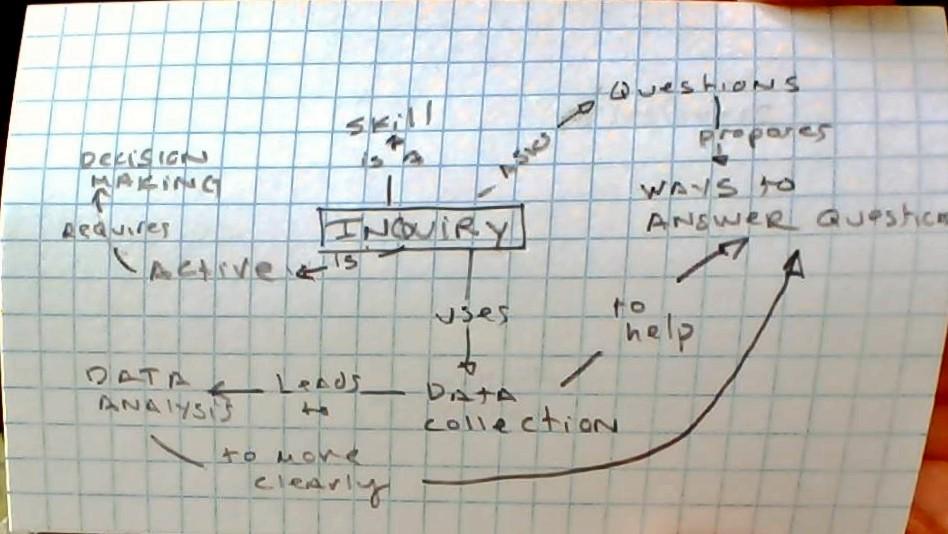Frank
Forum Replies Created
Viewing 5 posts - 1 through 5 (of 5 total)
-
FrankParticipantI think a more robust discussion of "how science is done" is important. In Lesson 2 - the concept map shown provides a good visual showing that there is not just a single "scientific method" that is progressed through step by step. There are a variety of ways that scientists work, we often simplify the science process when presenting to students that it becomes rigid and boring. Demonstrating and discussing the joy of inquiry and science is what I have landed upon as the most important concept for me to focus on.
-
FrankParticipantThe practice I took interest in was "position youth as people who do science". In my limited experience with CS projects, I think I have leaned too heavily into the notion that students are providing data to scientists to analyze. After reading the article, it is clear that this takes the students out of the equation. Reframing these activities so that the students are the ones using the data can be a powerful and motivating shift. I hope to do better in this regard in the coming school year.
-
FrankParticipantLast school year I had my students complete the Cornell Lab of Ornithology - Celebrating Urban Birds activity. On three separate days I took the class out to a small park near our school so that they could collect data. There were a couple of challenges that arose. First, students really did not see many birds, I think they found this pretty disappointing. Second, students did not have much background knowledge of bird identification. I certainly could have spent more time on helping students to identify the different species.
-
FrankParticipantOne activity that I had my students complete was a soil testing lab. I collected soil samples from 4 different locations, provided students with materials to test nutrient levels, porosity, and soil texture. I then asked students to pose a scientific question, hypothesis, and then test that hypothesis. I would put this activity between guided and open inquiry. The science practices students develop in this activity are numerous, experimental design, data collection and analysis, and developing a scientific claim. Students have pretty wide latitude to experiment. To make it even more open, I would have students collect their own soil samples from a location of their own choosing. This modification would make this a truly open inquiry activity. I also think this modification would further hone the skill of experimental design, students would have to think more deeply to arrive at an independent variable to test.
-
FrankParticipantInquiry is a process in which individuals consider a phenomenon, ask questions about its nature, and then propose way of understanding that phenomenon. It requires the inquirer to then choose tools and methods that can help to better understand the phenomenon, collecting and analyzing data to give insight. The process is iterative, with the scientist repeatedly asking new questions, proposing new answers and collection additional data.
 in reply to: Virtual Educator Retreat: Intro to Inquiry #826229
in reply to: Virtual Educator Retreat: Intro to Inquiry #826229
Viewing 5 posts - 1 through 5 (of 5 total)
